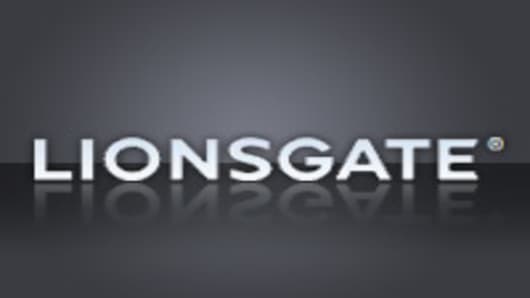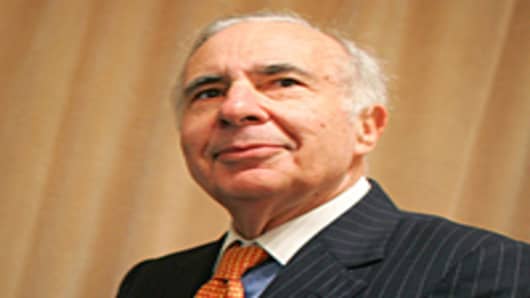Lionsgate stock gained 3.9 percent today as it was added to the Russell 2000 index, effective as of the end of trading.
The company'sshares finished the week at $7.27, which is notable, considering that Carl Icahn's tender offer is priced at $7 a share. Icahn controls 31.8 percent of shares (as of his tender deadline last Wednesday).
The addition to the Russell index gives Lionsgate a boost, and if the stock price doesn't dip again, it'll be harder for Icahn to draw more tenders.
Meanwhile, rumors are swirling that Lionsgate is in merger talks with MGM, which is heading towards bankruptcy. But it's time for some clarification of what's really going on between the two lions, and an explanation of which other players could swoop in.
Lionsgate has been interested in MGM for years, and has been upfront about its on-again, off-again discussions. When MGM put itself on the block Lionsgate bid $1.4 billion for studio, interested in MGM's massive library.
When MGM indicated Lionsgate would need to bid higher, Lionsgate opted not to. The companies are certainly in touch, sources confirm that Lionsgate does *not* have an offer currently on the table for MGM.
Here are the challenges a Lionsgate-MGM merger faces:
First, Lionsgate could not do such a deal without Carl Icahn's approval. If Icahn secures 33 percent of Lionsgate shares, which is certainly possible, he can flat out veto such a merger. But even with 31.8 percent of shares, he has de facto approval. The studio would *not* attempt to go forward with the deal without Icahn on board, even with his current share count.
Today Icahn was quoted by Dow Jones newswires, saying that he won't rule out a Lionsgate-MGM merger, but that he's skeptical of its value. Lionsgate SEC filings in March reveal that Lionsgate and Icahn discussed the possibility of an MGM deal last year, saying Icahn was not opposed at the time, though subsequently he's been outspoken in his opposition to an MGM deal.
Second, Lionsgate would have to convince MGM's lenders to accept a proposal that would not add a lot of debt to its balance sheet, which is a challenge.
And then there's the question of what MGM needs to sort out as it tries to restructure its $3.7 billion debt load. MGM's next deadline is the expiration of forbearance on July 15 and the studio's lenders have been working on a reorganization through bankruptcy.
What then? Some lenders will likely exchange their loan for an ownership stake in the company, and bring in a new studio team to manage (and exploit) the assets. The question is, who will MGM partner with? And will it be the exchange of a stake in exchange for management? or will it be a true merger?
If MGM partners with the likes of Lionsgate or Summit, the private studio behind the "Twilight" films, it will be a merger. And for MGM to work out the logistics of that kind of Lionsgate or Summit deal, MGM will first have to sort out its own financial situation, through bankruptcy or otherwise. And that's certain to at least take at least a few weeks.
There is a faster alternative. Spyglass entertainment, a financing, production and distribution company behind the likes of "Get him to the Greek" and "G.I. Joe," has also been in talks with MGM. It's not a full studio, and a smaller company than say Lionsgate.
Spyglass would effectively come in to manage MGM's assets—to take over the company-- in exchange for an ownership stake. Because that situation isn't a true merger of studios, MGM could move in this direction before sorting out its own bankruptcy situation.
And in the meantime, we'll be watching the Icahn-Lionsgate battle.
Questions? Comments? MediaMoney@cnbc.com




